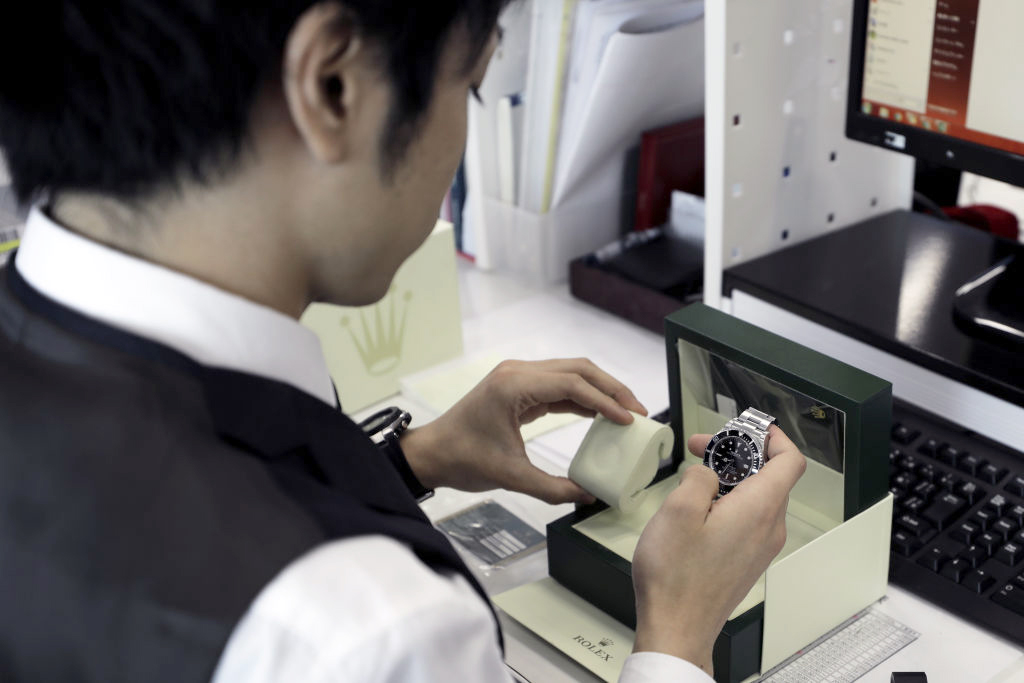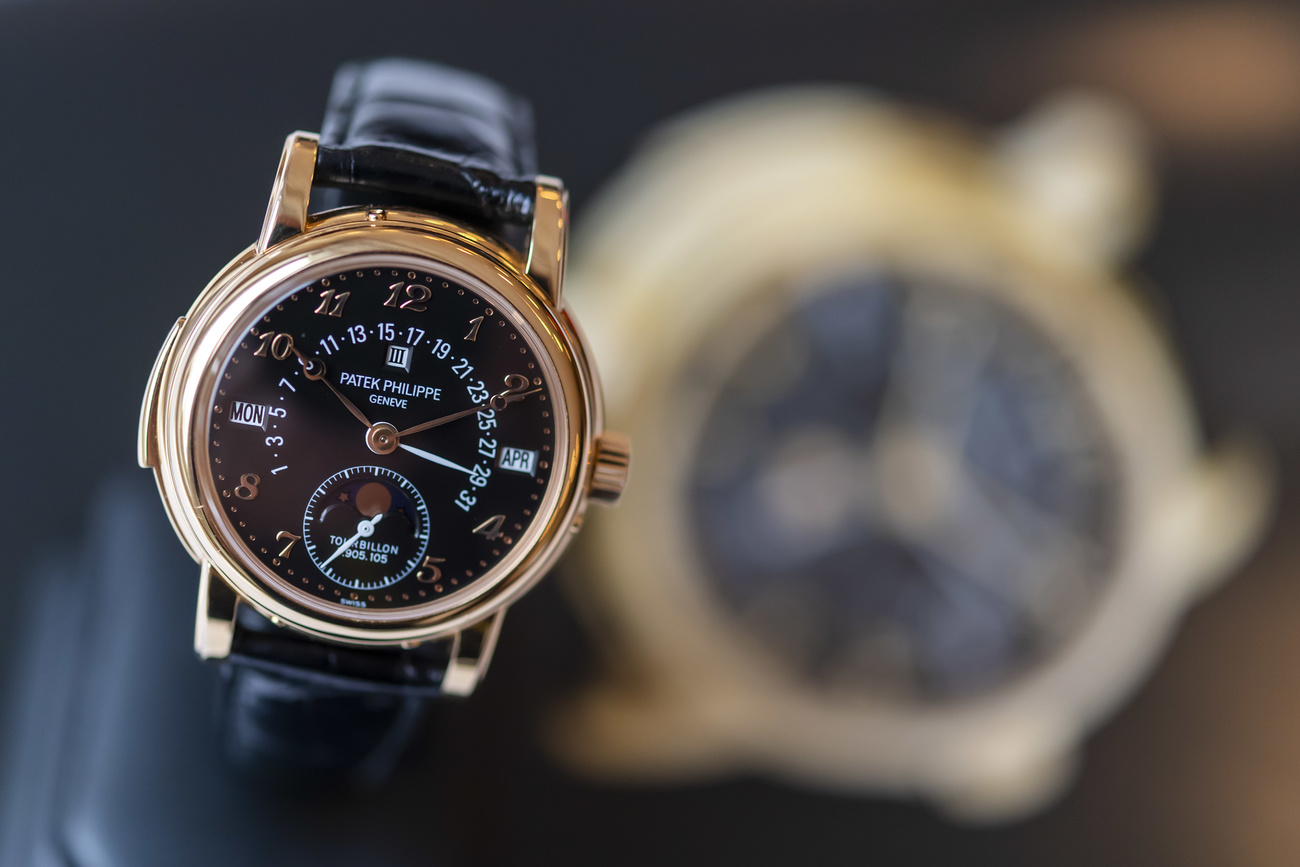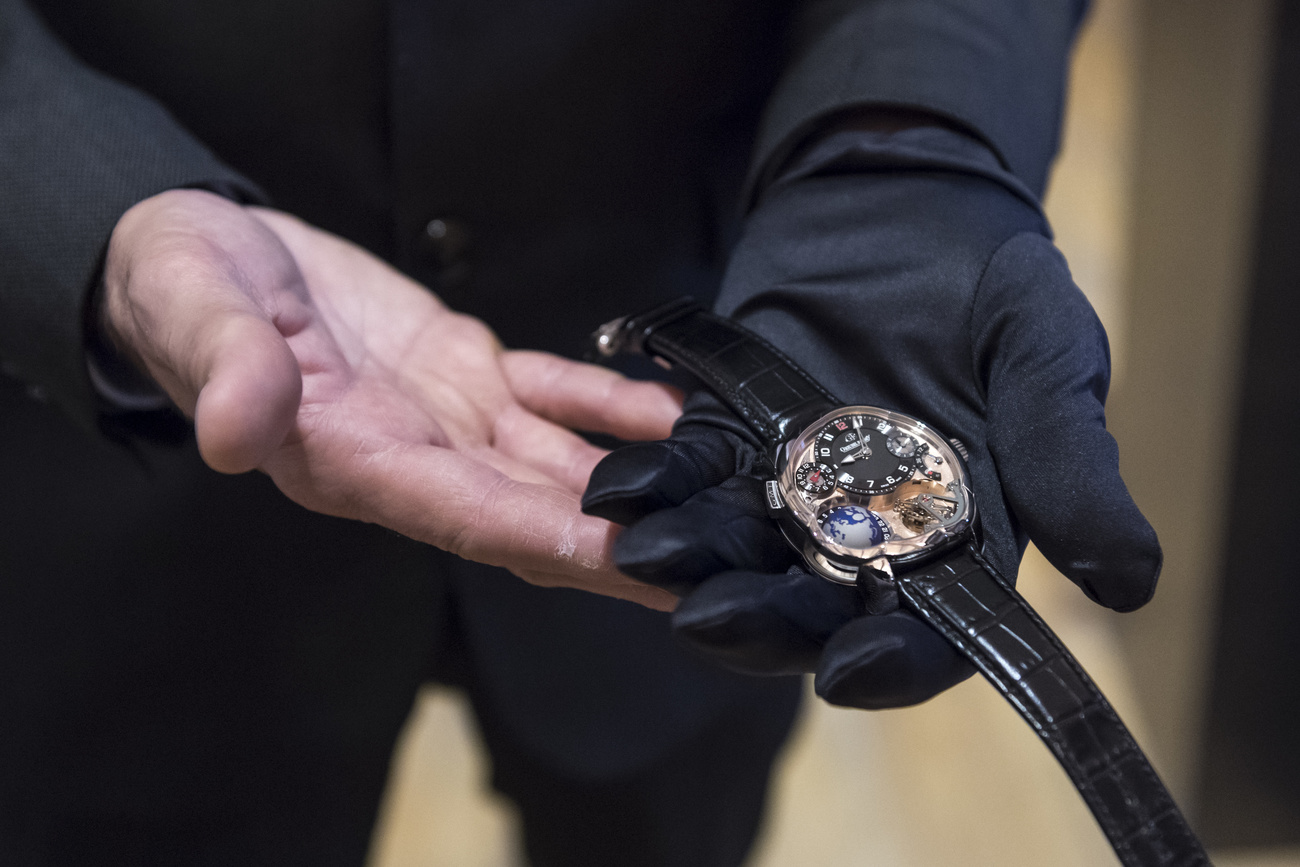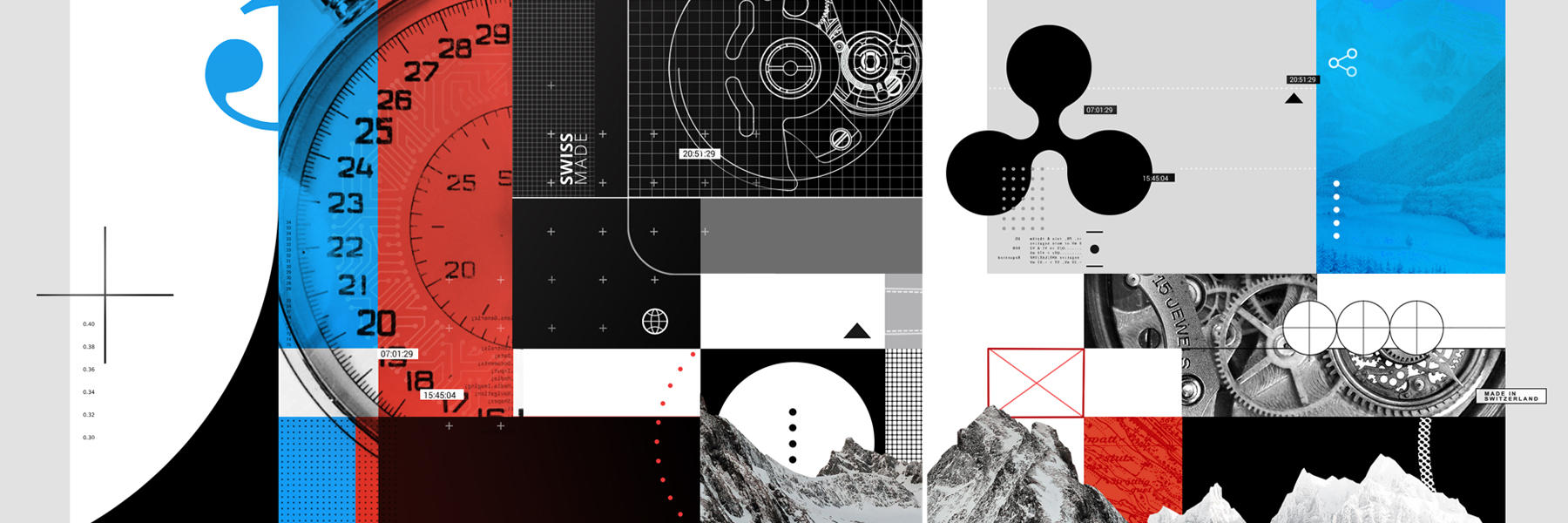
Watch lovers in Japan can spend years hunting for a Rolex

With the hashtag #rolexmarathon, Japanese people reveal the lengths they currently have to go to find their dream Rolex. But the scarcity of the Swiss-made timepieces is a global phenomenon, exacerbated by investors eager to snap up luxury products in times of crisis.
Masayuki Sakurai has been running a “Rolex marathon” since January this year. The 43-year-old entrepreneur is on the hunt for a Cosmograph Daytona, one of the three most in-demand Rolex models alongside the Submariner and the GMT-Master. Almost every day, after work or between meetings, Sakurai goes looking in a few boutiques in the chic Tokyo district of Ginza or in other parts of the capital.
If he has time, he even visits the same shop twice a day. “The most popular models are sold to those who are there when the shop receives them. So it’s better not to arrive ten minutes late,” he tells SWI swissinfo.ch.
In Japan, unlike in Europe, there are no long waiting lists. Unless you are a privileged customer of the brand, the rule is simple: first come, first served.
Since 2015 or so, luxury sports watches have become increasingly popular in Japan. And not just Rolex – certain models by Swiss brands Audemars Piguet, Patek Philippe and Richard Mille are also particularly prized.

More
Chinese investors pick luxury watches over houses
Unavoidable shortage
Contacted by SWI swissinfo.ch, Rolex said in a written statement that the rarity of its products was not part of a business strategy.
“Currently production can’t respond to the existing demand without lowering quality, and that is unimaginable,” says spokeswoman Virginie Chevailler. She confirmed, however, that Rolex is continuing to expand capacity at its four sites in Switzerland “as much as possible, and always in keeping with quality criteria”.
Nevertheless, a number of specialists say that the time it takes to get your hands on a Rolex – which can extend to years in some parts of the world – is not necessarily bad news for the Geneva brand.
“There is always a little marketing and prestige attached to rarity,” says Jean-Philippe Bertschy, a consumer goods analyst at the Vontobel investment management group. “In any case, Rolex has never strayed from its principles, which is also part of its success.”
These principles are notably independence, discretion, extreme consistency in developing its iconic models, and strict control of its distribution channels. With a turnover of almost CHF8 billion ($8.42 billion) in 2021, according to estimates by Morgan StanleyExternal link, Rolex is by far the most successful Swiss watch brand around the world.
Rolex produces more than a million timepieces each year in its largely automated factories. It doesn’t aspire to operate in the same league as high-end brands like Patek Philippe or Audemars Piguet, which produce only a few tens of thousands of watches and which sell fewer – but more exclusive – products. But the fact remains that the sheer desirability of Rolex, a decisive factor for positioning in the luxury sector, is reaching new heights.

Well-organised resellers
“Considerable funds released by central banking authorities to support the economy during the pandemic have boosted demand even more,” says Masayuki Hirota, editor-in-chief of the magazine Chronos Japan.
Whereas in the past in Japan only watch fans devoted themselves to running a “Rolex marathon”, many Japanese who profited financially from the pandemic have now joined in – purely in the hope of reselling their gold-medal acquisition.
“A second-hand specialist told me that 90% of Rolex buyers are resellers,” Hirota says. “They are very well organised and encourage ordinary people to take part in the marathon too. Official boutiques try to fight against the reselling, but it’s an endless battle.”
For those motivated more by profit than by the pleasure of a prestigious watch on their wrist, the margins are attractive. With a catalogue price of CHF13,000, the Daytona so coveted by Masayuki Sakurai can be found on major online watch sites for up to almost CHF60,000. It’s not unusual for popular Rolex models to fetch as much as five times their original price on the second-hand market.
From real estate to luxury watches
And it’s not only in Japan: luxury watches have become highly prized investment objects around the world. A study by Bob’s Watches, an online watch sales specialist, found that the growth rate in the market value of Rolex has exceeded that of gold, real estate or other investments previously considered stable, according to the Hong Kong news site hk01.comExternal link.

More
Swiss watchmaking: where things stand
In China, a survey from October 2021 of 1,500 adults with an annual income of over 500,000 yuan (CHF73,600), by consulting firm CSG Intage, found that 88% of respondents expected to maintain or increase their spending on luxury watches over the next 12 months. Prestigious timepieces are an attractive alternative for wealthy Chinese at a time when authorities are cracking down on property speculation.
Given that luxury watches have become a kind of universal standard of value, they also allow wealthy Chinese to bypass strict capital controls which limit transfers of assets abroad by individuals to $50,000 (CHF47,700).
“Customs officials either won’t notice your watch or may not know how much it is worth,” said David Wang, a luxury watch reseller based in Shanghai, in an interview with the Financial Times. “That creates a safe and efficient way to take your money abroad.”
Beware the Rolex bubble
But beware of disappointment, warns Masayuki Hirota. “Personally I think the ‘Rolex bubble’ is a temporary phenomenon which will eventually calm down. One reason is that the price per unit is relatively low, despite the potential margins. In addition, unlike with shares, there is no way to short-sell a watch, which makes active investment difficult.”
In Tokyo, Masayuki Sakurai has been running the marathon for 70 days now and has visited the official Rolex retailers more than 300 times. He makes on-the-ground enquiries about the status of stocks and has occasional conversations with the sales teams. While waiting for the inventory check, his heart races. “It’s like a game of chance, it’s addictive,” he says. “The more difficult an object is to get hold of, the greater the sense of achievement when you succeed.”
M.P., another Japanese watch lover who wants to remain anonymous, is in the 27th month of his quest. For him, there’s also no end in sight. But he continues to run to luxury shops around Tokyo. “The Rolex marathon makes me better and strengthens my personality,” he says.
Nevertheless, he hopes the inflation in second-hand markets will calm down. But why he is so insistent in his hunt for these timepieces? “They are cool, practical and well-designed watches,” he says. “I love looking at them again and again, and I would love to have one. I love Rolex.”
Translated from French by Catherine Hickley.

More
Can Swiss watchmakers survive another century of disruption?

In compliance with the JTI standards
More: SWI swissinfo.ch certified by the Journalism Trust Initiative



























You can find an overview of ongoing debates with our journalists here . Please join us!
If you want to start a conversation about a topic raised in this article or want to report factual errors, email us at english@swissinfo.ch.